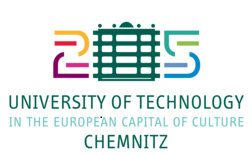Assessing Teacher Readiness for Online Teaching in Cambodian Higher Education
DOI:
https://doi.org/10.71514/jssal/2025.193Keywords:
Online teaching, TPACK, institutional support, higher educationAbstract
The study examines Cambodian higher education teachers' readiness for online teaching using a structural equation modeling (SEM) approach. The framework centers around three key dimensions: teachers' self-efficacy in technological, pedagogical, and content knowledge (TPACK), their perceived online teaching presence, and the institutional support they receive. A quantitative survey was administered to 140 teachers at the university level. Teachers' online teaching experience positively influenced their TPACK self-efficacy. Online teaching experience also had a significant positive impact on teachers' perceived online teaching presences. Furthermore, teachers' perceptions of institutional support were positively associated with their online teaching experience. These results highlight the critical role of teachers' online teaching experience in shaping their readiness for online teaching and learning (OTL). The findings suggest that targeted professional development programs and institutional support mechanisms can effectively enhance teachers' self-efficacy, online teaching presence, and perceptions of institutional support in Cambodian higher education.
Downloads
References
Adedoyin, O. B., & Soykan, E. (2023). Covid-19 pandemic and online learning: the challenges and opportunities. Interactive Learning Environments, 31(2), 863–875. https://doi.org/10.1080/10494820.2020.1813180
Almaiah, M. A., Al-Khasawneh, A., & Althunibat, A. (2020). Exploring the critical challenges and factors influencing the E-learning system usage during COVID-19 pandemic. Education and Information Technologies, 25(6), 5261–5280. https://doi.org/10.1007/S10639-020-10219-Y/FIGURES/3
Al-Samarraie, H., Teng, B. K., Alzahrani, A. I., & Alalwan, N. (2018). E-learning continuance satisfaction in higher education: a unified perspective from instructors and students. Studies in Higher Education, 43(11), 2003–2019. https://doi.org/10.1080/03075079.2017.1298088
Amin Mydin, A., Alaklabi, S., & Alomar, A. (2022). A Review of Teachers’ Self-Efficacy and to What Extent it is Influenced by Instructional Leadership in Educational Institutions. International Transaction Journal of Engineering, 13(9), 1–12. https://doi.org/10.14456/ITJEMAST.2022.181
Anderson, J. C., & Gerbing, D. W. (1988). Structural equation modeling in practice: A review and recommended two-step approach. Psychological Bulletin, 103(3), 411–423. https://doi.org/10.1037/0033-2909.103.3.411
Arbaugh, J. B., Cleveland-Innes, M., Diaz, S. R., Garrison, D. R., Ice, P., Richardson, J. C., & Swan, K. P. (2008). Developing a community of inquiry instrument: Testing a measure of the Community of Inquiry framework using a multi-institutional sample. The Internet and Higher Education, 11(3–4), 133–136. https://doi.org/10.1016/J.IHEDUC.2008.06.003
Archambault, L., & Crippen, K. (2009). Examining TPACK among K-12 online distance educators in the United States. Contemporary Issues in Technology and Teacher Education, 9(1), 71–88.
Baran, E., & Correia, A. P. (2014). A professional development framework for online teaching. TechTrends, 58(5), 95–101. https://doi.org/10.1007/S11528-014-0791-0/METRICS
Baran, E., Correia, A. P., & Thompson, A. (2011). Transforming online teaching practice: critical analysis of the literature on the roles and competencies of online teachers. Distance Education, 32(3), 421–439. https://doi.org/10.1080/01587919.2011.610293
Baroudi, S., & Shaya, N. (2022). Exploring predictors of teachers’ self-efficacy for online teaching in the Arab world amid COVID-19. Education and Information Technologies, 27(6), 8093–8110. https://doi.org/10.1007/s10639-022-10946-4
Beaton, D. E., Bombardier, C., Guillemin, F., & Ferraz, M. B. (2000). Guidelines for the Process of Cross-Cultural Adaptation of Self-Report Measures. Spine, 25(24), 3186–3191. https://doi.org/10.1097/00007632-200012150-00014
Bolkan, S. (2016). The Importance of Instructor Clarity and Its Effect on Student Learning: Facilitating Elaboration by Reducing Cognitive Load. Communication Reports, 29(3), 152–162. https://doi.org/10.1080/08934215.2015.1067708
Branscum, A. Y. (2024). Best Practices of Online Teaching in Service-Learning. Journal of Service-learning in Higher Education, 18. https://journals.sfu.ca/jslhe/index.php/jslhe/article/view/495
Çam, Ş. S., & Koç, G. (2024). Professional Development Program to Develop Teacher Educators’ Technological Pedagogical Content Knowledge. SAGE Open, 14(2). https://doi.org/10.1177/21582440241242841
Chai, C. S., Koh, J. H. L., & Tsai, C.-C. (2013). A Review of Technological Pedagogical Content Knowledge. Educational Technology & Society, 16(2), 31–51. http://www.jstor.org/stable/jeductechsoci.16.2.31
Chan, R., Bista, K., & Allen, R. (Eds.). (2021). Online Teaching and Learning in Higher Education during COVID-19: International Perspectives and Experiences (1st ed.). Routledge. https://doi.org/10.4324/9781003125921
Chea, P., Bo, C., & Minami, R. (2022). Cambodian Secondary School Teachers’ Readiness for Online Teaching During the Covid-19 Pandemic. CDRI Working Paper Series, 134. https://cdri.org.kh/publication/cambodian-secondary-school-teachers-readiness-for-online-teaching-during-the-covid-19-pandemic
Cohen, J. (1988). Statistical Power Analysis for the Behavioral Sciences (2nd ed.). Routledge. https://doi.org/10.4324/9780203771587
Corry, M., & Stella, J. (2018). Teacher self-efficacy in online education: A review of the literature. Research in Learning Technology, 26. https://doi.org/10.25304/rlt.v26.2047
Dede, C., Ketelhut, D. J., Whitehouse, P., Breit, L., & McCloskey, E. M. (2008). A Research Agenda for Online Teacher Professional Development. Journal of Teacher Education, 60(1), 8–19. https://doi.org/10.1177/0022487108327554
Diamah, A., Rahmawati, Y., Paristiowati, M., Fitriani, E., Irwanto, I., Dobson, S., & Sevilla, D. (2022). Evaluating the effectiveness of technological pedagogical content knowledge-based training program in enhancing pre-service teachers’ perceptions of technological pedagogical content knowledge. Frontiers in Education, 7. https://doi.org/10.3389/feduc.2022.897447
Dolighan, T., & Owen, M. (2021). Teacher Efficacy for Online Teaching During the COVID-19 Pandemic. Brock Education Journal, 30(1), 95–116. https://doi.org/10.26522/brocked.v30i1.851
Dweck, C. S. (2024). Personal Perspectives on Mindsets, Motivation, and Psychology. Motivation Science, 10(1), 1–8. https://doi.org/10.1037/MOT0000304
Eisenberger, R., Huntington, R., Hutchison, S., & Sowa, D. (1986). Perceived Organizational Support. Journal of Applied Psychology, 71(3), 500–507. https://doi.org/10.1037/0021-9010.71.3.500
Ertmer, P. A., & Ottenbreit-Leftwich, A. T. (2010). Teacher Technology Change: How Knowledge, Confidence, Beliefs, and Culture Intersect. Journal of Research on Technology in Education, 42(3), 255–284. www.iste.org/jrte
Fabriz, S., Mendzheritskaya, J., & Stehle, S. (2021). Impact of Synchronous and Asynchronous Settings of Online Teaching and Learning in Higher Education on Students’ Learning Experience During COVID-19. Frontiers in Psychology, 12, 733554. https://doi.org/10.3389/FPSYG.2021.733554/BIBTEX
Fornell, C., & Larcker, D. F. (1981). Evaluating Structural Equation Models with Unobservable Variables and Measurement Error. Journal of Marketing Research, 18(1), 39. https://doi.org/10.2307/3151312
Garrison, D. R., Anderson, T., & Archer, W. (2000). Critical Inquiry in a Text-Based Environment: Computer Conferencing in Higher Education. The Internet and Higher Education, 2, 87-105. http://dx.doi.org/10.1016/S1096-7516(00)00016-6
Gordon, D., Blundell, C., Mills, R., & Bourke, T. (2023). Teacher self-efficacy and reform: a systematic literature review. The Australian Educational Researcher, 50(3), 801–821. https://doi.org/10.1007/s13384-022-00526-3
Goretzko, D., Pham, T. T. H., & Bühner, M. (2021). Exploratory factor analysis: Current use, methodological developments and recommendations for good practice. Current Psychology, 40(7), 3510–3521. https://doi.org/10.1007/s12144-019-00300-2
Goretzko, D., Siemund, K., & Sterner, P. (2024). Evaluating Model Fit of Measurement Models in Confirmatory Factor Analysis. Educational and Psychological Measurement, 84(1), 123–144. https://doi.org/10.1177/00131644231163813
Hasyim, N., Arismunandar, Butarbutar, R., Ramli, A. M., & Malik Nur, I. D. (2024). Mind mapping of teachers’ readiness for online teaching and learning: A reflective study of urban and suburban areas. Cogent Education, 11(1). https://doi.org/10.1080/2331186X.2023.2292864
Hattie, J., & Timperley, H. (2007). The power of feedback. Review of Educational Research, 77(1), 81–112. https://doi.org/10.3102/003465430298487
Hermien, N., & Wiyatini, T. (2019). Teaching in a Digital Age - Second Edition. Kesehatan Masyarakat, 252. https://repository.poltekkes-smg.ac.id/index.php?p=show_detail&id=23725&keywords
Horvitz, B., & Beach, A. (2011). Professional Development to Support Online Teaching. Journal of Faculty Development, 9(2), 24–32.
Hu, L., & Bentler, P. M. (1999). Cutoff criteria for fit indexes in covariance structure analysis: Conventional criteria versus new alternatives. Structural Equation Modeling: A Multidisciplinary Journal, 6(1), 1–55. https://doi.org/10.1080/10705519909540118
Kleickmann, T., Steffensky, M., & Praetorius, A.-K. (2020). Quality of Teaching in Science Education. Zeitschrift Für Pädagogik Beiheft, 1, 37–53. https://doi.org/10.3262/ZPB2001037
Kline, R. B. (2023). Principles and practice of structural equation modeling. In Guilford Press. Guilford Press.
Koehler, M. J., Mishra, P., & Cain, W. (2013). What is Technological Pedagogical Content Knowledge (TPACK)? Journal of Education, 193(3), 13–19. https://doi.org/10.1177/002205741319300303
Kurtessis, J. N., Eisenberger, R., Ford, M. T., Buffardi, L. C., Stewart, K. A., & Adis, C. S. (2017). Perceived Organizational Support: A Meta-Analytic Evaluation of Organizational Support Theory. Journal of Management, 43(6), 1854–1884. https://doi.org/10.1177/0149206315575554
Le Fevre, D. M., Meng, C., & Foreman-Brown, G. (2024). Navigating senior leadership in higher education: a case study of women in Cambodia. International Journal of Leadership in Education, 1-17. https://doi.org/10.1080/13603124.2023.2301346
Martin, F., Ritzhaupt, A., Kumar, S., & Budhrani, K. (2019). Award-winning faculty online teaching practices: Course design, assessment and evaluation, and facilitation. The Internet and Higher Education, 42, 34–43. https://doi.org/10.1016/j.iheduc.2019.04.001
McLeod, S. (2025). Zone of Proximal Development. Simple Psychology. https://www.simplypsychology.org/zone-of-proximal-development.html
Means, B., Toyama, Y., Murphy, R., Bakia, M., & Jones, K. (2010). Evaluation of Evidence-Based Practices in Online Learning: A Meta-analysis and Review of Online Learning Studies. US Department of Education. https://www2.ed.gov/rschstat/eval/tech/evidence-based-practices/finalreport.pdf
Mishra, P., & Koehler, M. J. (2006). Technological Pedagogical Content Knowledge: A Framework for Teacher Knowledge. Teachers College Record: The Voice of Scholarship in Education, 108(6), 1017–1054. https://doi.org/10.1111/j.1467-9620.2006.00684.x
MoEYS. (2023). Teacher Policy Action Plan 2024-2030. https://moeys.gov.kh/storage/uploads/documents//6699e393cbbd6.pdf
Peugh, J., & Feldon, D. F. (2020). “How Well Does Your Structural Equation Model Fit Your Data?”: Is Marcoulides and Yuan’s Equivalence Test the Answer? CBE—Life Sciences Education, 19(3), es5. https://doi.org/10.1187/cbe.20-01-0016
Praetorius, A. K., Klieme, E., Herbert, B., & Pinger, P. (2018). Generic dimensions of teaching quality: the German framework of Three Basic Dimensions. ZDM - Mathematics Education, 50(3), 407–426. https://doi.org/10.1007/S11858-018-0918-4/METRICS
Prestridge, S. (2019). Categorising teachers’ use of social media for their professional learning: A self-generating professional learning paradigm. Computers & Education, 129, 143–158. https://doi.org/10.1016/J.COMPEDU.2018.11.003
Rafique, R. (2024). Supporting teachers through online professional development: a small-scale qualitative study with teachers in Bangladesh. Open Learning: The Journal of Open, Distance and e-Learning, 39(2), 112–131. https://doi.org/10.1080/02680513.2024.2316629
Ramakrishnan, R., & Salleh, N. M. (2019). Teacher’s Self-Efficacy: A Systematic Review. International Journal of Academic Research in Business and Social Sciences, 8(12). https://doi.org/10.6007/IJARBSS/v8-i12/5448
Scherer, R., Howard, S. K., Tondeur, J., & Siddiq, F. (2021). Profiling teachers’ readiness for online teaching and learning in higher education: Who’s ready? Computers in Human Behavior, 118, 106675. https://doi.org/10.1016/J.CHB.2020.106675
Scherer, R., Siddiq, F., Howard, S. K., & Tondeur, J. (2023). The more experienced, the better prepared? New evidence on the relation between teachers’ experience and their readiness for online teaching and learning. Computers in Human Behavior, 139. https://doi.org/10.1016/j.chb.2022.107530
Schmidt, D. A., Baran, E., Thompson, A. D., Mishra, P., Koehler, M. J., & Shin, T. S. (2009). Technological Pedagogical Content Knowledge (TPACK): The Development and Validation of an Assessment Instrument for Preservice Teachers. Journal of Research on Technology in Education, 42(2),123-149. https://doi.org/10.1080/15391523.2009.10782544
Shi, D., Lee, T., & Terry, R. A. (2018). Revisiting the Model Size Effect in Structural Equation Modeling. Structural Equation Modeling, 25(1), 21–40. https://doi.org/10.1080/10705511.2017.1369088
Snook, I., O’Neill, J., Clark, J., O’Neill, A.-M., & Openshaw, R. (2009). Invisible Learnings? A Commentary on John Hattie ’ s book : Visible Learning : A synthesis of over 800 meta-analyses relating to achievement. Routledge. https://www.routledge.com/Visible-Learning-A-Synthesis-of-Over-800-Meta-Analyses-Relating-to-Achievement/Hattie/p/book/9780415476188
Sok, S., & Bunry, R. (2021). Higher Education in Cambodia. In M. Symaco Lorraine Pe and Hayden (Ed.), International Handbook on Education in South East Asia (pp. 1–24). Springer Nature Singapore. https://doi.org/10.1007/978-981-16-8136-3_47-1
Sok, S., & Bunry, R. (2023). Higher Education in Cambodia. In L. P. Symaco & M. Hayden (Eds.), International Handbook on Education in South East Asia (pp. 1–24). Springer. https://doi.org/10.1007/978-981-16-8136-3_47-1
Stone, B. M. (2021). The Ethical Use of Fit Indices in Structural Equation Modeling: Recommendations for Psychologists. Frontiers in Psychology, 12. https://doi.org/10.3389/fpsyg.2021.783226
Su, Y. (2023). Delving into EFL teachers’ digital literacy and professional identity in the pandemic era: Technological Pedagogical Content Knowledge (TPACK) framework. Heliyon, 9(6), e16361. https://doi.org/10.1016/J.HELIYON.2023.E16361
Teo, T., & Khine, M. S. (2009). Structural Equation Modeling in Educational Research. In Structural Equation Modeling in Educational Research. BRILL. https://doi.org/10.1163/9789087907891
Uerz, D., Volman, M., & Kral, M. (2018). Teacher educators’ competences in fostering student teachers’ proficiency in teaching and learning with technology: An overview of relevant research literature. Teaching and Teacher Education, 70, 12–23. https://doi.org/10.1016/J.TATE.2017.11.005
UNESCO. (2023). UNESCO contributes to call for transformative approach for education in Southeast Asia. UNESCO. https://www.unesco.org/en/articles/unesco-contributes-call-transformative-approach-education-southeast-asia
VYGOTSKY, L. S. (1980). Mind in Society (M. Cole, V. Jolm-Steiner, S. Scribner, & E. Souberman, Eds.). Harvard University Press. https://doi.org/10.2307/j.ctvjf9vz4
Yang, X., & Du, J. (2024). The effect of teacher self-efficacy, online pedagogical and content knowledge, and emotion regulation on teacher digital burnout: a mediation model. BMC Psychology, 12(1), 51. https://doi.org/10.1186/s40359-024-01540-z
Zgheib, G., Al Daia, R., & Serhan, M. (2023). A contextual approach for exploring faculty readiness to teach online. Heliyon, 9(10). https://doi.org/10.1016/j.heliyon.2023.e20491
Zhang, W., & Tang, J. (2021). Teachers’ TPACK Development: A Review of Literature. Open Journal of Social Sciences, 09(07), 367–380. https://doi.org/10.4236/jss.2021.97027
Zhang, Y., Tian, Y., Yao, L., Duan, C., Sun, X., & Niu, G. (2022). Individual differences matter in the effect of teaching presence on perceived learning: From the social cognitive perspective of self-regulated learning. Computers & Education, 179, 104427. https://doi.org/10.1016/j.compedu.2021.104427
Downloads
Published
How to Cite
Issue
Section
License
Copyright (c) 2025 Borey Be

This work is licensed under a Creative Commons Attribution-NonCommercial 4.0 International License.
The work is made available under the terms of the Public Offer and the Creative Commons Attribution 4.0 International License (CC BY 4.0). This license allows anyone to reproduce, distribute, and adapt the material in any medium or format, including for commercial purposes, provided that proper credit is given to the creator(s) and the original source.












